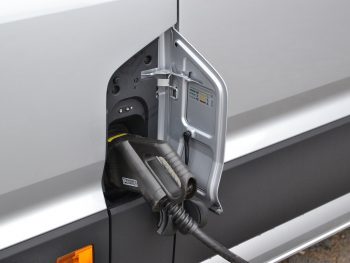A £15m skills funding boost would play a critical role in filling the current EV skills gap in the automotive sector.

The call comes from the Institute of the Motor Industry (IMI) as it says its data clearly shows that the automotive retail sector does not currently have the skills and the pipeline of talent needed to service and repair electrified vehicles in the countdown to the 2030 ICE ban.
Earlier this summer, the IMI revealed that as of June 2021, only 6.5% of the automotive sector was EV-ready.
But latest new car figures from the Society of Motor Manufacturers and Traders (SMMT) show that battery electric vehicle (BEVs) registrations grew 36.5% in July and accounted for 9.0% of the total market, while plug-in hybrids (PHEVs) were up 32.2% and took an 8.0% share. Hybrids were up 15.5% and took an 11.9% share. This means that nearly a third (28.9%) of cars registered in July were hybrid or electric.
According to the IMI, the last 18 months – and the impact of the pandemic – have only served to put the sector into reverse in getting itself EV-ready. And it’s repeating its plea for the Government to commit funding to support EV skills training.
Its suggested £15m boost would play a critical role, contributing towards training for up to 75,000 technicians; the expected total needed to be able to safely maintain the total number of electric vehicles predicted for the next decade.
While this sounds a lot, the organisation said it’s a modest figure in the context of the £1.9bn investment committed by the Government in the 2020 Spending Review to supporting the transition to zero emission vehicles for charging infrastructure and consumer incentives.
And it would make a significant difference, particularly for the independent sector which doesn’t have the training budgets of the manufacturer franchise network and faces being left behind, with the result that consumers will have less choice.
Speaking as the doors to the British Motor Show open, Steve Nash, CEO of the Institute of the Motor Industry, said: “Whilst the show will provide a real buzz for the future of electrified motoring, there’s no getting away from the fact that there are still some big hurdles to overcome to meet the Government’s 2030 deadline for the ban of the sale of new petrol and diesel vehicles.
“With just 6.5% of the automotive workforce currently qualified to work on electric vehicles there is a gaping chasm in the availability of technicians. And that chasm not only presents a safety threat for those who may risk working on high voltage vehicle systems without appropriate training and qualifications; it also means the premium on skills could add to costs for motorists, creating another, unnecessary deterrent to the switch to EV.
“The Government has committed £1.9bn to tackling consumer uptake and charging issues. We are asking that £15m is set aside for employers to access to support their own investment in skills training to get their workforce EV-ready. This will be particularly important for the independent sector.”
Research of the automotive industry in early 2021 highlighted that 92% of respondents believe it is extremely or very important to invest in EV training for meeting the challenge of the 2030 deadline.
“Working on any form of electrified vehicle requires a completely different set of skills to those needed to work on a petrol or diesel vehicle,” added Steve Nash. “Without those skills, serious injury or death is a very real prospect. And we’ve got just over eight years to have a sector that is EV-ready.”
“The Government wants the adoption of EV to continue at a pace – the investment in EV charging needs to be matched by an investment in EV skills training to help employers ensure the workforce is EV-ready and electrified motoring doesn’t come at a premium.”

